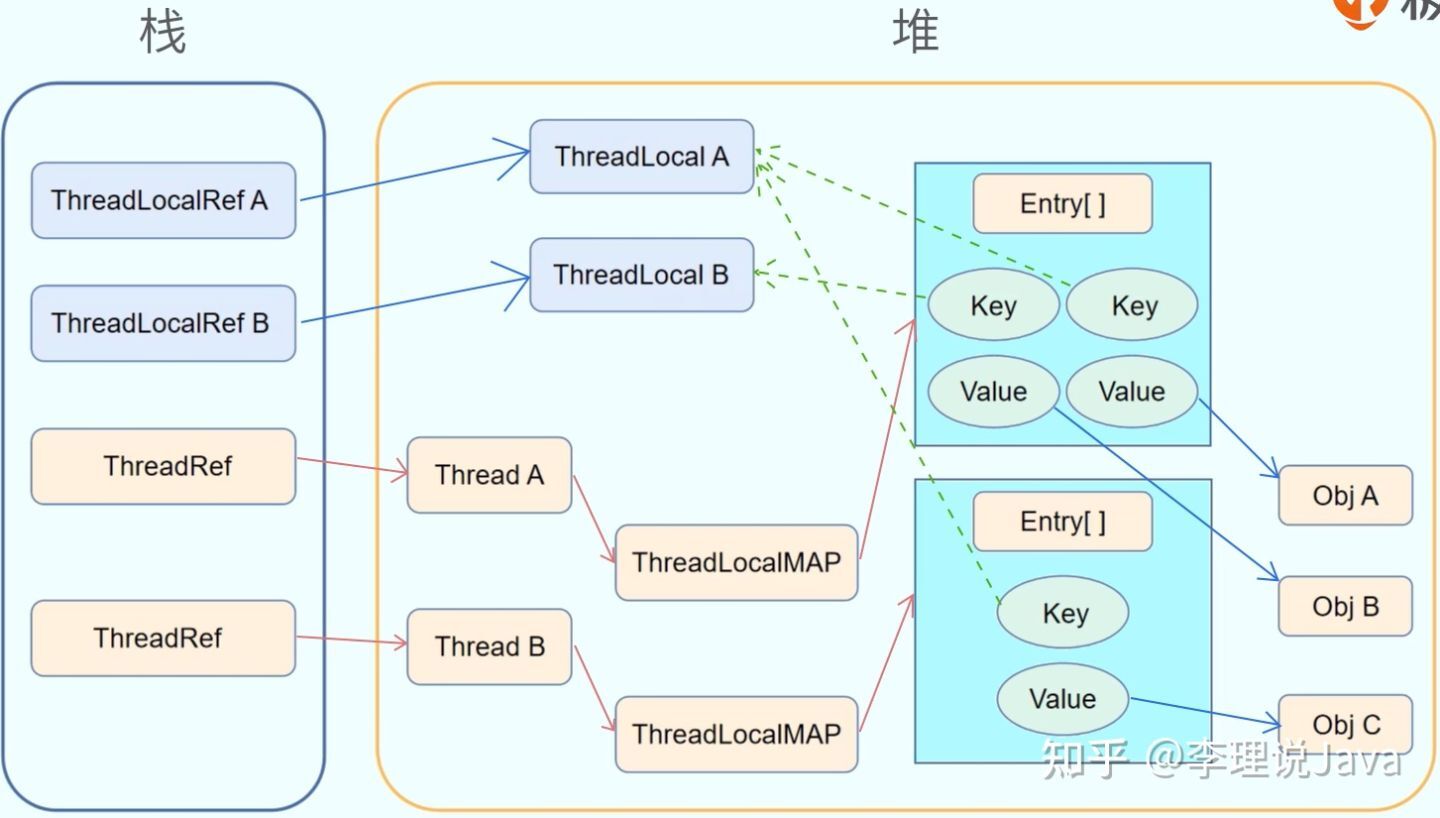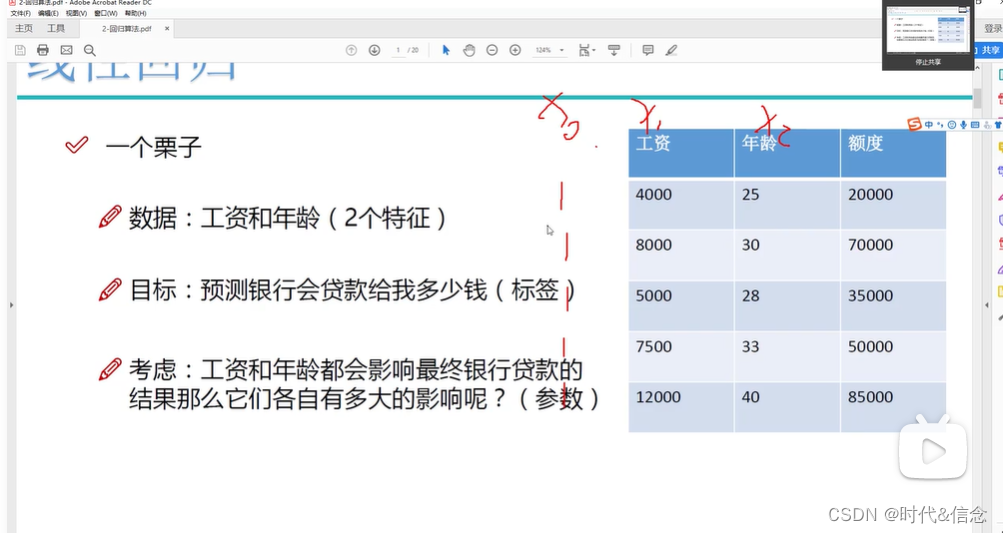当前位置:网站首页>SWIG Tutorial "One"
SWIG Tutorial "One"
2022-08-10 14:54:00 【Akure Studio】
Swig《一》
Instruction file description
The most important conversion between different languages is the encapsulation of syntax between different languages,swigIt's used to do these things.And these fields are the guidanceswiginstructions to accomplish these operations
/* File : example.i */
%module example
%{
/* Put headers and other declarations here */
extern double My_variable;
extern int fact(int);
extern int my_mod(int n, int m);
%}
extern double My_variable;
extern int fact(int);
extern int my_mod(int n, int m);
module:指定swigmodule will be created
%module mymodule
%{
// Here is what is needed in the source code
#include "myheader.h"
%}
// Here is what is needed in the object code after conversion
// Now list ISO C/C++ declarations
int foo;
int bar(int x);
...
%{....%}
所有在%{....%}The content in between will be placed literallyswigin the created package file.This area is usually used to place someswigDefinitions or declarations that will not be generated,对应C/C++The wrapper is usually used to import header files
%+指令
大多数的swigInstructions are like this%开头的指令,The purpose is to reconcileCcan be distinguished well
默认情况下,swig是不会对includein the incoming header file#include进行展开的,除非你指定-includeall
%{
/* Include in the generated wrapper file */
typedef unsigned int size_t;
%}
/* Tell SWIG about it */
typedef unsigned int size_t;
Or
%inline %{
typedef unsigned int size_t;
%}
像C语言一样,swig中也能使用swigType redefinition
%include 引入头文件
使用%includeinstructions to importswig定义的头文件
%import引入头文件
If you just want to import the file using the macro definitions and types in the file can be usedimport
%import "foo.i"
预定义变量
To differentiate between different languages and to be able to differentiate in some guidance documents,siwgSome variables are predefined in advance
SWIG Always defined when SWIG is processing a file
SWIGIMPORTED Defined when SWIG is importing a file with %import
SWIG_VERSION Hexadecimal (binary-coded decimal) number containing SWIG version,
such as 0x010311 (corresponding to SWIG-1.3.11).
SWIGCSHARP Defined when using C#
SWIGD Defined when using D
SWIGGO Defined when using Go
SWIGGUILE Defined when using Guile
SWIGJAVA Defined when using Java
SWIGJAVASCRIPT Defined when using Javascript
SWIG_JAVASCRIPT_JSC Defined when using Javascript with -jsc
SWIG_JAVASCRIPT_V8 Defined when using Javascript with -v8 or -node
SWIGLUA Defined when using Lua
SWIGMZSCHEME Defined when using Mzscheme
SWIGOCAML Defined when using OCaml
SWIGOCTAVE Defined when using Octave
SWIGPERL Defined when using Perl
SWIGPHP Defined when using PHP (any version)
SWIGPHP7 Defined when using PHP7
SWIGPYTHON Defined when using Python
SWIGR Defined when using R
SWIGRUBY Defined when using Ruby
SWIGSCILAB Defined when using Scilab
SWIGTCL Defined when using Tcl
SWIGXML Defined when using XML
__LINE__ Current line number
__FILE__ Current file name
__STDC__ Defined to indicate ISO C
__cplusplus Defined when -c++ option used
SWIG_D_VERSION Unsigned integer target version when using D
SWIGGO_CGO Defined when using Go for cgo
SWIGGO_GCCGO Defined when using Go for gccgo
SWIGGO_INTGO_SIZE Size of the Go type int when using Go (32 or 64)
SWIGPYTHON_PY3 Defined when using Python with -py3
SWIGPYTHON_BUILTIN Defined when using Python with -builtin
SWIG_RUBY_AUTORENAME Defined when using Ruby with -autorename
Enhanced macro definitions
In order to better realize the encapsulation of the source code,swigProvides an enhanced macro definition directive, %define 和 %enddef
%define ARRAYHELPER(type, name)
%inline %{
type *new_ ## name (int nitems) {
return (type *) malloc(sizeof(type)*nitems);
}
void delete_ ## name(type *t) {
free(t);
}
type name ## _get(type *t, int index) {
return t[index];
}
void name ## _set(type *t, int index, type val) {
t[index] = val;
}
%}
%enddef
ARRAYHELPER(int, IntArray)
ARRAYHELPER(double, DoubleArray)
指令透传
正常情况下,in the function that needs to be encapsulated,swig会将#define进行处理,If you want the corresponding macro definition not to be preprocessed, you can do so#前面添加%来实现
%extend Foo {
void bar() {
%#ifdef DEBUG
printf("I'm in bar\n");
%#endif
}
}
指针处理(cpointer.i)
A pointer needs to be passed in some functions,But there may not be a concept of pointers in other functions,因此swigDeliberately provide a way to encapsulate pointers%pointer_functions(int**, intp);的含义就是,Provides a function wrapper,This function encapsulates what can be executed by creating a pointer,The meaning here is to apply for a pieceint大小的内存并返回
%include "cpointer.i"
/* Create some functions for working with "int *" */
%pointer_functions(int, intp);
/* A function that uses an "int *" */
void add(int x, int y, int *result);
If you want to deal with complex or custom onesclass可以使用%pointer_class(int, intp);来进行处理,相比之下使用pointer_classIt is more convenient and convenient for garbage collection to manage the content of the application as an object
%module example
%include "cpointer.i"
/* Wrap a class interface around an "int *" */
%pointer_class(int, intp);
/* A function that uses an "int *" */
void add(int x, int y, int *result);
类型转换
When some types need to be converted, type conversion instructions can be usedpointer_cast,The first parameter is the current type,The second parameter is the parameter after conversion,The third is the encapsulated function name
%include "cpointer.i"
%pointer_cast(int *, unsigned int *, int_to_uint);
数组(carrays.i)
Import header files before use,指令方式%array_functions(type, name)
%include "carrays.i"
%array_functions(double, doubleArray);
void print_array(double x[10]);
同样,这里可以使用array_classto encapsulate an array of custom types
%module example
%include "carrays.i"
%array_class(double, doubleArray);
void print_array(double x[10]);
内存管理(cmalloc.i)
swigProvides modules for memory management,Use these commands to correctmalloc,calloc,realloc和free进行封装,The specific command form is as follows
%malloc(type [, name=type])
%calloc(type [, name=type])
%realloc(type [, name=type])
%free(type [, name=type])
%sizeof(type [, name=type])
%allocators(type [, name=type])
// SWIG interface
%include "cmalloc.i"
%malloc(int);
%free(int);
%malloc(int *, intp);
%free(int *, intp);
%allocators(double);
CType data encapsulation(cdata.i)
引入cdata.i模块后,will be provided in the wrapper codeCdata*, memmove()The encapsulation of other functions is used to apply and releaseC类型数据.
The following methods can be used if the type is known
%include "carrays.i"
%include "cdata.i"
%array_class(int, intArray);
If the type is an unknown type,就需要借助cdata指令了%cdata(type [, name=type])
内存释放
当一个CThe function in allocates a block of memory,并返回一个char *类型时,swigIt may not be possible to determine whether the corresponding content needs to be released,新版本的swigIt has been able to make self-judgment on simple source code,If the source code applies for a piece of memory but does not release it,在目标代码中swigBy default, functions that are freed are encapsulated,比如go中没有char * 类型的数据,在进行封装时swig会创建一个string类型数据,并将原有的char *内容赋值到string对象中,Then the object is automatically released according to the judgment,But when the function is complex, it needs to be specified manually,Commands are required at this time%newobject来进行指定
%newobject foo;
char *foo() {
char *result = (char *) malloc(sizeof(char));
return result;
}
STL的支持
对于STLSupport is a gradual process,目前已经支持的STL如下所示

使用STLBe careful when throwing exceptions,Appropriate encapsulation of possible exceptions is usually required when using them
%module example
%include "std_vector.i"
%typemap(throws) std::out_of_range {
// custom exception handler
}
%template(VectInt) std::vector<int>;
A more general approach is to wrap all exceptions
%include "exception.i"
%exception {
try {
$action
} catch (const std::exception& e) {
SWIG_exception(SWIG_RuntimeError, e.what());
}
}
SWIG_exception(int code, const char *message)Used to throw exceptions in the encapsulated target function code,Common error types are as follows
SWIG_MemoryError
SWIG_IOError
SWIG_RuntimeError
SWIG_IndexError
SWIG_TypeError
SWIG_DivisionByZero
SWIG_OverflowError
SWIG_SyntaxError
SWIG_ValueError
SWIG_SystemError
参数类型(typemaps.i)
If there is the following function,如果不对result进行声明,那么swigIt will only be processed in the form of a pointerresult参数,If you pass in an empty one directlyresultThe bottom layer will crash directly on assignment
void add(double a, double b, double *result) {
*result = a + b;
}
因此需要使用%applycommand to guide the parameters,Add a directive to the parameter%apply double *OUTPUT之后,swig已经知道resultis a parameter that needs to be output,因此会对resultthe legitimacy of the test,If it is an outlier(null)那么直接抛出异常
%include "typemaps.i"
%apply double *OUTPUT { double *result };
%inline %{
extern void add(double a, double b, double *result);
extern void Sum(double a, double b, double *result);
%}
If there are multiple parameters to output,Just add it backwards in the form of a list
%include "typemaps.i"
%apply int *OUTPUT { int *width, int *height };
// Returns a pair (width, height)
void getwinsize(int winid, int *width, int *height);
If you think it is troublesome to write a long series of instructions every time, you can simplify the above process into the following way,Directly replace the corresponding parameters with OUTPUT即可
%include "typemaps.i"
%inline %{
extern void add(double a, double b, double *OUTPUT);
%}
另外需要注意的是,一旦使用%apply进行声明,那么后续所有的double *resultparameters are processed,如果想取消%applyThe role needs to be declared as follows:
%clear double *result; // Remove all typemaps for double *result
Our more commonly used form is :
入参
int *INPUT
short *INPUT
long *INPUT
unsigned int *INPUT
unsigned short *INPUT
unsigned long *INPUT
double *INPUT
float *INPUT
出参
int *OUTPUT
short *OUTPUT
long *OUTPUT
unsigned int *OUTPUT
unsigned short *OUTPUT
unsigned long *OUTPUT
double *OUTPUT
float *OUTPUT
That is, the input and the output
int *INOUT
short *INOUT
long *INOUT
unsigned int *INOUT
unsigned short *INOUT
unsigned long *INOUT
double *INOUT
float *INOUT
the above writing,directly on the parameter,等同使用applyof the following command form
// Make double *result an output value
%apply double *OUTPUT { double *result };
// Make Int32 *in an input value
%apply int *INPUT { int32 *in };
// Make long *x inout
%apply long *INOUT {long *x};
...
%clear double *result;
%clear Int32 *in, long *x;
边栏推荐
- SWIG教程《一》
- leetcode 739. Daily Temperatures 每日温度(中等)
- How is the monthly salary table stored in the database?Ask for a design idea
- 640. 求解方程 : 简单模拟题
- Classifying irises using decision trees
- 普林斯顿微积分读本05第四章--求解多项式的极限问题
- 自定义picker滚动选择器样式
- Boss raises salary!Look at my WPF Loading!!!
- MySQL Principle and Optimization: Update Optimization
- 2022-08-10 Daily: Swin Transformer author Cao Yue joins Zhiyuan to carry out research on basic vision models
猜你喜欢

学习MySQL 临时表

1W字详解线程本地存储 ThreadLocal

机器学习总结(一)

laravel throws the error to Dingding

12海里、24海里、200海里的意义及名称

注意力模型---Attention Model

符合信创要求的堡垒机有哪些?支持哪些系统?

【MindSpore易点通机器人-02】设计与技术选型

1W word detailed thread local storage ThreadLocal

Analysys and the Alliance of Small and Medium Banks jointly released the Hainan Digital Economy Index, so stay tuned!
随机推荐
12海里、24海里、200海里的意义及名称
PAT甲级 1014 排队等候(队列大模拟+格式化时间)
systemui状态栏添加新图标
Second half of 2011 System Architect Afternoon Paper II
王学岗————直播推流(软便)03x264集成与camera推流
【有限元分析】异型密封圈计算泄漏量与参数化优化过程(带分析源文件)
无线网络、HTTP缓存、IPv6
fatal error C1083 无法打开包括文件'io.h' No such file
静态变量存储在哪个区
容器化 | 在 S3 实现定时备份
Lack of comparators, op amps come to the rescue!(Op amp is recorded as a comparator circuit)
@RequestBody的使用[通俗易懂]
易观分析联合中小银行联盟发布海南数字经济指数,敬请期待!
antd组件中a-modal设置固定高度,内容滚动显示
力扣解法汇总640-求解方程
SWIG教程《二》
符合信创要求的堡垒机有哪些?支持哪些系统?
1W字详解线程本地存储 ThreadLocal
640. 求解方程 : 简单模拟题
使用Uiautomator2进行APP自动化测试